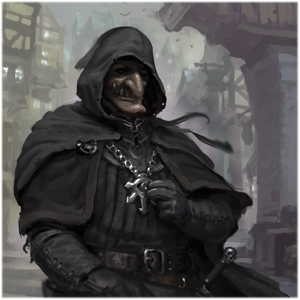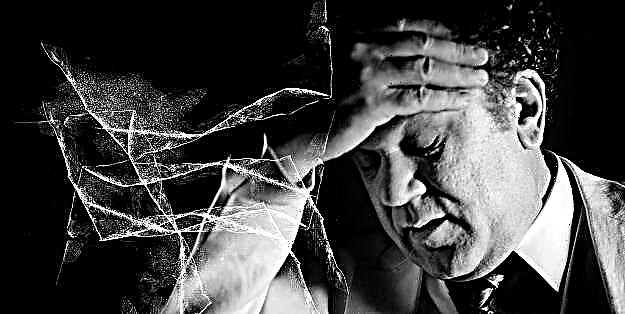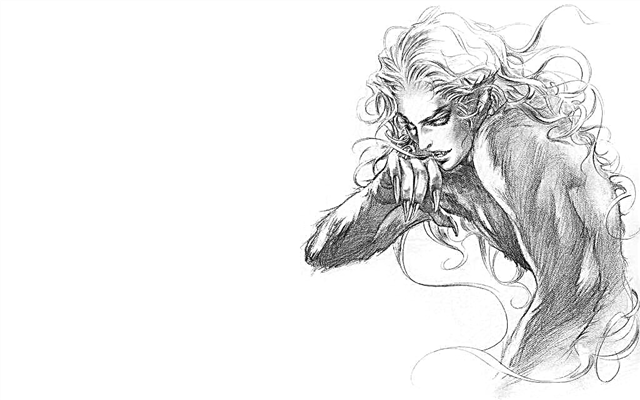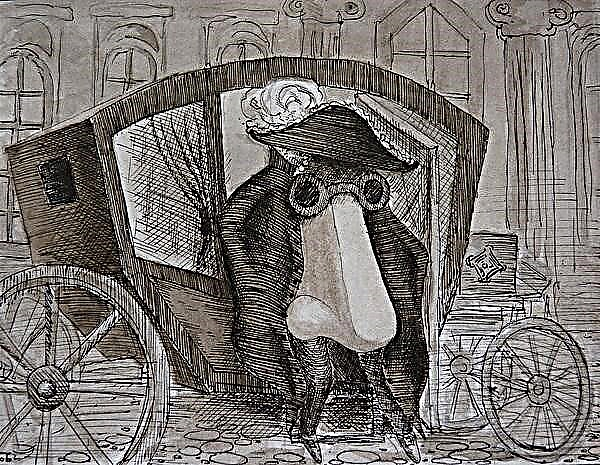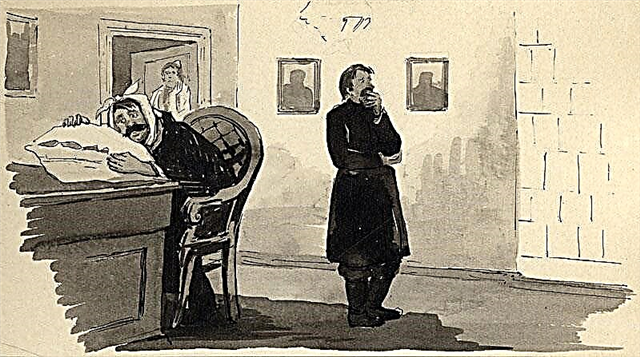The main character, sitting in a cafe and listening, in his opinion, the ugly music of the local orchestra, meets a mysterious man. He agrees to have a drink with him, having previously learned if he is a Berliner and does not compose music. The protagonist negatively answers the first question, on the second he notes that he has a superficial musical education and wrote once, but considers all his attempts unsuccessful.
Unknown goes to the musicians. After some time, the orchestra played the overture of "Iphigenia in Aulida." The acquaintance at this moment is being transformed: "before me was a bandmaster." After the performance, he admits that "The orchestra was doing great!" The main character offers a new friend to go into the hall and finish the bottle. In the hall, he again behaves strangely, walks to the window and starts humming the part of the choir of priestesses from "Iphigenia in Tauris", introducing new "changes that are striking in strength and novelty."
When finished, he shares with the main character his understanding of the musician’s mission: “Can you even list the ways in which you come to compose music? This is a wide road, and everyone who is not lazy is scurrying around on it and yelling triumphantly: “We are initiates!” <...> they enter the kingdom of dreams through the ivory gates; few have been given the opportunity to see these gates, and even fewer to enter them! <...> Strange visions flash here and there <...>, it is difficult to break out of this kingdom <...> monsters block the path <...>. But only a few, awakening from their dreams, rise up and, having passed through the kingdom of dreams, reach the truth. This is the peak ... ".
He talks about his own path, how he got into the kingdom of dreams, how he was tormented by sorrows and fears; but he saw a ray of light in this kingdom, woke up and saw a "huge bright eye." Divine melodies poured; the eye helped him to cope with the melodies and promised to help him: “once again you will see me, and my melodies will become yours”.
With these words, he jumped up and ran away. In vain the main character was waiting for his return and decided to leave. But near the Brandenburg Gate he again saw his figure.
This time it comes to art and attitude to it. A friend declares that he is doomed to "wander here in the void"; the protagonist is surprised that in Berlin, full of talents, with an audience welcoming these talents, his acquaintance is a lonely composer.
A friend’s response is: “Well them (artists, composers)! They only know that they are roaming. Going into excessive subtleties, they turn everything upside down, just to dig out at least one pathetic little thought. For chatter about art, about the love of art, and even those who do not have time to get to the art itself, and if by chance they are resolved with two or three thoughts, then they will blow a chilling chill from their cooking, showing how far they are from the sun ... "
The protagonist claims that the creations of Gluck in Berlin are treated with due respect. A friend says the opposite: once he wanted to listen to the production of "Iphigenia in Tauris"; he came to the theater and heard an overture from Iphigenia in Aulis. He thought that they put on another Iphigenia today. To his amazement, followed by "Iphigenia in Tauris"!
“Meanwhile, these works have been divided for twenty years. The whole effect, the whole strictly thought-out exposition of the tragedy finally disappears. ”
He again escapes from the main character.
A few months later, passing by the theater where Gluck was given the Armida, at the very windows, the protagonist notices his acquaintance. He curses the performance, the actors are late, entering ahead of time and asks if the hero wants to listen to the real “Armida”? After an affirmative answer, a mysterious man leads him to his home.
An inconspicuous house, darkness in it, gropingly advances; the stranger brings a candle. In the middle of the room there is a small piano, yellowed note paper, an inkwell covered with cobwebs (they have not been used for a long time).
In the corner of the room is a closet, a stranger comes up and takes out the musical score of Armida from there, while the protagonist notices all the works of Gluck in the closet.
The stranger says that he will play an overture, but asks the hero to turn over the sheets (musical paper is empty!). The stranger plays great, bringing brilliant innovations and changes. When the overture ended, the stranger, "closing his eyes, sat back in an armless position, but straightened up again almost immediately and, frantically leafing through several blank pages, said in a hollow voice:" All this, my sir, I wrote when I escaped from the dream kingdom . But I revealed the sacred to the uninitiated, and an icy hand dug into my flaming heart! It didn’t break, but I was doomed to wander among the uninitiated, like a spirit torn away from the body, deprived of the image, so that no one would recognize me until the sunflower lifted me back to the eternal one! ”
Following this, he perfectly performs the final scene of Armida.
"What is it? Who are you? ” - asks the main character.
A friend leaves him for a good quarter of an hour. The main character is already ceasing to hope for his return and gropingly begins to make his way to the exit, when suddenly the door swings open and the mysterious friend appears in the ceremonial embroidered caftan, rich camisole and at the sword, gently takes the hero by the arm and solemnly says: “I am the gentleman Glyuk!”




